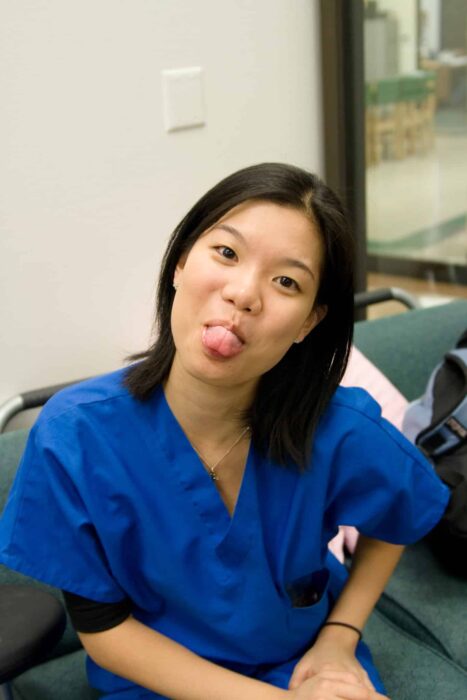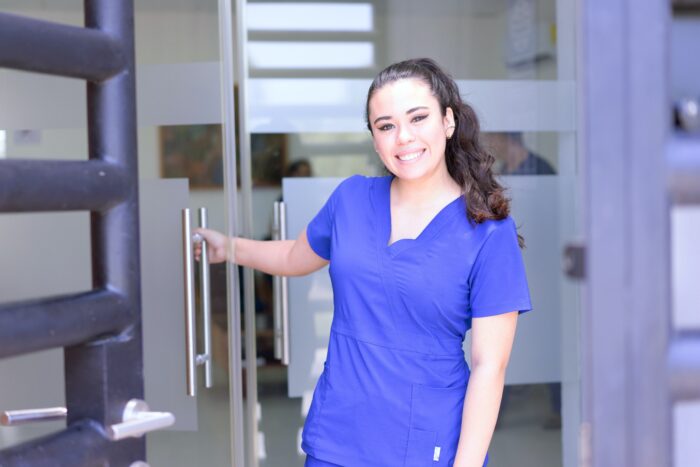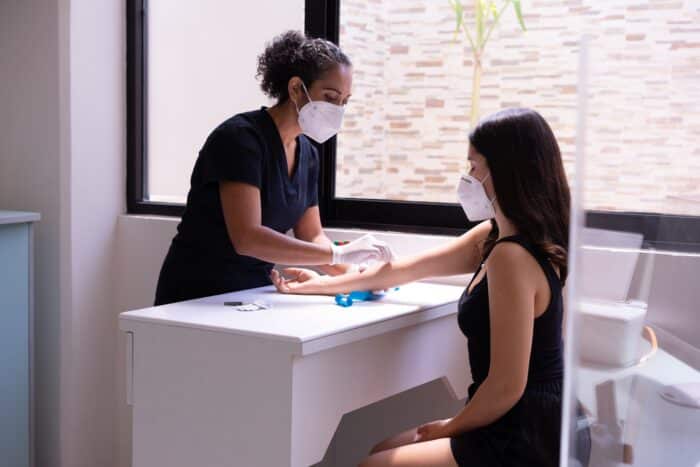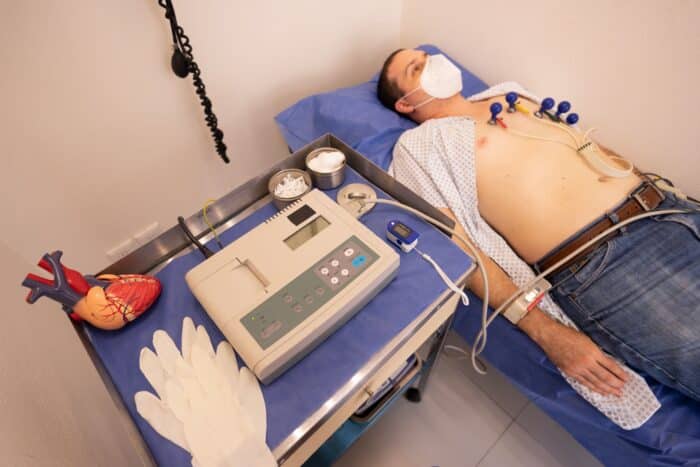As a medical assistant, you work directly with a physician taking care of the patient.
Before you start working as one, or before you sit for your interview, you might think –
“What skills should I put on my resume?”
Or
“What skills & abilities are required by employers?”
As a medical assistant, the necessary skills can be grouped under three categories –
- Clinical Skills
- Administrative Skills
- Soft Skills
Also see: Medical Assistant Interview Questions
In this article, we dive into the top skills required in these three groups. The more skills you can list on your resume, the better.
Read more on: What Is a Medical Assistant?
Clinical Skills That Medical Assistants Should Have
As a Medical assistant, you would take care of patients; your main job is to ensure they are comfortable.
You are also required to oversee some duties before a patient can see the doctor or the physician. Here are the top clinical skills required to be a medical assistant.
Read: 12 Reasons to Become a Medical Assistant
#1 Measuring The Vitals
You can be tasked to take the patient’s vital signs, such as body temperature, blood pressure, pulse, heart rate, oxygen levels, and respiration rate.
You need to report these measurements to the physician. Based on that, they can move forward with the diagnosis & the treatment. As a medical assistant, you should be able to measure these vital signs, record them & then finally report them to the physician.
#2 Dressing the Wounds
In some cases dressing up a wound might require just a band-aid. But in other cases, special care is necessary to ensure the wound is clean and infection-free.
As a medical assistant, you will be required to have some knowledge about dressing the wound, but as you gain more experience, you can be trained to apply special dressings, and you can mention that on your resume.
#3 Taking Blood, Urine, or Stool Samples
As a medical assistant, you might have to draw blood, and you need to have an understanding of how to puncture a vein to get a sample of a person’s blood. In your medical assistant training program, you’re taught the basics of phlebotomy, and that’s enough for a beginner.
See: Can Medical Assistants Draw Blood?
Other than that, you need to know how to collect urine & stool samples and assist the patients with the same.
Also See: Medical Assitant vs Phlebotomist
#4 Performing Electrocardiograms (EKGs or ECGs)
EKGs or ECGs are heart monitoring tests where you monitor and record signals in a person’s heart using an EKG Machine. These tests are vital and can help detect complications like abnormal heart rhythms or blocked arteries. After the right training, you can be asked to perform these tests.
Also read: Cardiology Medical Assistant
#5 Perform Cardiopulmonary Resuscitation (CPR)
In a medical facility, you need to be prepared for emergencies. As a medical assistant, you must know how to perform CPR and assist the patient during an emergency.
#6 Removing Stitches
As a medical assistant, you should know how to remove stitches or sutures. You should understand the safety procedures, and in case of an infection, you’ll have to report to the physician.
Important Note –If you’re starting your career as a medical assistant, you might have the experience to perform all these clinical duties. Your training program will focus on helping you understand the basics, and as you gain experience working as a medical assistant, you can be tasked with more of these duties.
Also see: Is Medical Assistant a Good Career?

Do You Want To Become a Medical Assistant? Check Out Free Medical Assistant Masterclass!
In our masterclass you learn:
- How to be a medical assistant faster…in just 4 months!
- Avoid student debt & driving to classes
- #1 thing employers want from Medical Assistants
- How to stand-apart & get a university certificate for a strong resume
Administrative Skills That Medical Assistants Should Have
In addition to clinical skills, you need to gain administrative skills, such as-
#1 Scheduling Appointments
A physician’s clinic or office is always wrapped in hundreds of vital tasks, and in some cases, it becomes imperative for patients to schedule appointments.
Medical Assistants act as liaisons between patients and physicians, and their tasks involve scheduling appointments keeping in mind the physician’s availability.
To schedule appointments effectively, you need to be organized, and this helps in the smooth functioning of the office or clinic.
#2 Billing
A Medical Assistant is required to maintain billing records, follow up with patients on any incomplete or missing payments, or help patients by informing them of alternate ways of making their payments.
Related: Medical Assistant vs Medical Billing and Coding
#3 Examination Notes
One of the essential tasks of a Medical Assistant is to provide support services to the physician and streamline their workflow. Medical Assistants need to record the vital signs of the visiting patients and record any notes on the patient’s past medical histories before the examination.
This helps in keeping the physician updated with the patient’s information in an organized and precise manner.
#4 Organizing the Office
Another key responsibility of a Medical Assistant is to keep the front office, and the inventory organized. By maintaining the organization of the office or the clinic, there are fewer chances of confusion, and the physician can ensure optimum care delivery for the patient.
#5 Prepping
Medical Assistants are also required to maintain and prepare the examination rooms before and after each patient’s visit. This helps save time and keeps the examination rooms sterile.
Further, they are also required to provide the patients with basic information on the procedures, and examinations as and when directed by the physician.
Also read: Medical Administrative Assistant
Soft Skills That Medical Assistants Should Have
Soft skills are defined as personal attributes that help you interact with patients holistically. Medical Assistants need to obtain and refine their soft skills to become more functional in their workplace.
Here’s a list of soft skills that help a Medical Assistant –
#1 Communication Skills
The field of health care is highly dependent on good communication skills. This is because miscommunication often leads to errors in medical judgments which can result in a lack of care for the patients.
Hence, Medical Assistants are required to act as liaisons between patients and physicians and make sure the physician understands the patient’s concerns and vice versa.
#2 Empathy
Since Medical Assistants are required to face patients directly, they must realize that each patient might have a varying degree of pain and hesitancy, among other feelings.
Trying to be a good listener and empathizing with the patients irrespective of where they come from is an essential soft skill for a Medical Assistant.
#3 Compassion
You need to be compassionate if you’re working in a healthcare facility. To give optimum patient care, Medical Assistants are required to learn and practice compassion.
Sometimes all a patient needs is someone to be sympathetic about their concerns, and if you can do that as a Medical Assistant, that not only helps the patient but improves their overall view of the healthcare facility.
#4 Patience
Control over one’s emotions as well as patience is an essential trait that helps Medical Assistants in dealing with anxious or stressed patients.
#5 Adaptability & Multitasking Capablity
The field of medical assistance is fast-paced and ever-evolving. Hence Medical Assistants would potentially be required to handle any adverse or unexpected turn of events.
Being able to multitask without being overwhelmed is a key trait of a successful medical assistant.
#6 Critical Thinking
In the field of healthcare, critical thinking is a crucial skill that can decide the level and type of care delivery required by each patient.
Since Medical Assistants are usually the first point of contact for patients, a flair for quick judgment is required in case of emergencies.
Read More: Top Medical Assistant Job Duties
Certified Medical Assistants Vs Certified Nursing Assistants
How To Develop These Skills?
Now that we’ve covered the top skills of a medical assistant, you’ll probably have a question about how to become a medical assistant or how you can develop these skills.
Or you can develop these skills with proper training and experience.
Some ways of developing these skills include-
#1 Enrolling in Training Programs
There are a lot of online as well as offline training programs available for Medical Assistants. Enrolling in a program and getting proper training is the first (& the most crucial) step for gaining Medical Assistant skills.
Such medical assistant programs are available through online certification courses and degree programs. Typically, the duration of medical assistant programs ranges from 4 months to 2 years, and their cost ranges from $2000 to $30,000.
See: Medical Assistant Programs Cost
Cheapest Medical Assistant Program
After completing these training programs, you can sit for a certification examination, and once you clear that, you’re a Certified Clinical Medical Assistant.
Obtaining this certificate will help with your employability as the employer will know that you have sufficient training and the knowledge required for this role.
Also read: Is Medical Assistant Degree Required?
#2 Externships
Externships will allow you to work near other Medical Assistants or physicians in a healthcare facility.
Through an externship, you can learn the day-to-day roles and responsibilities of a Medical Assistant. You also get a feel of what’s it like working as a medical assistant and how they act as liaisons between patients and physicians.
With an externship, you gain on-the-job experience, which can come in handy when looking for a job.
Here’s more on Medical Assistant Externship.
#3 Obtaining Additional Certifications or Training In Secondary Skills
Although not a requirement, you can take training or certifications to further your administrative or soft skills. This can mean getting training in communication or attending a productivity class.
One such certification for medical administrative assistants is the CMAA.
You can also compare – CMAA vs CCMA.
In addition, to your medical assistant training & certification, any additional training that showcases how you can effectively fulfill your duties as a medical assistant can tip the skills in your favor.
This was everything you need to know about the skills that are necessary for a Medical Assistant.
Also see: Medical Assistant Certificate Requirements
Conclusion
In conclusion, showcasing these top medical assistant skills on your resume can significantly boost your chances of standing out in the competitive healthcare field.
Remember, tailoring your resume to highlight these skills effectively can make a lasting impression on potential employers and pave the way for a successful career as a medical assistant.
Related Resources:
- How Long Does it Take to Become a Medical Assistant?
- Where Can Medical Assistants Work?
- Certified Medical Assistant Salary
- Are Medical Assistant Licenses Required?
- How To Get Medical Assistant Jobs With No Experience?
- Medical Assistant Educational Requirements
- Medical Assistant Scope of Practice By State
- Medical Assistant Degree vs. Certificate
- Accelerated Medical Assistant Program
- Can Medical Assistants Start IVs?
- Medical Assistant Degree Online 6 Weeks
Related Articles
-
How to Be Successful in College in 2022 – 7 Simple Tips to Succeed
-
How Do Scholarships Work? Read This First…Truth is Shocking
-
7 Best College Majors 2024: What Should I Major In?
-
How to Choose a College – 10 Things You Must Consider in 2024
-
Why Go to College? Top 13 Benefits for Adult Students in 2022
-
Top 5 Best Alternatives to Community College for 2024











